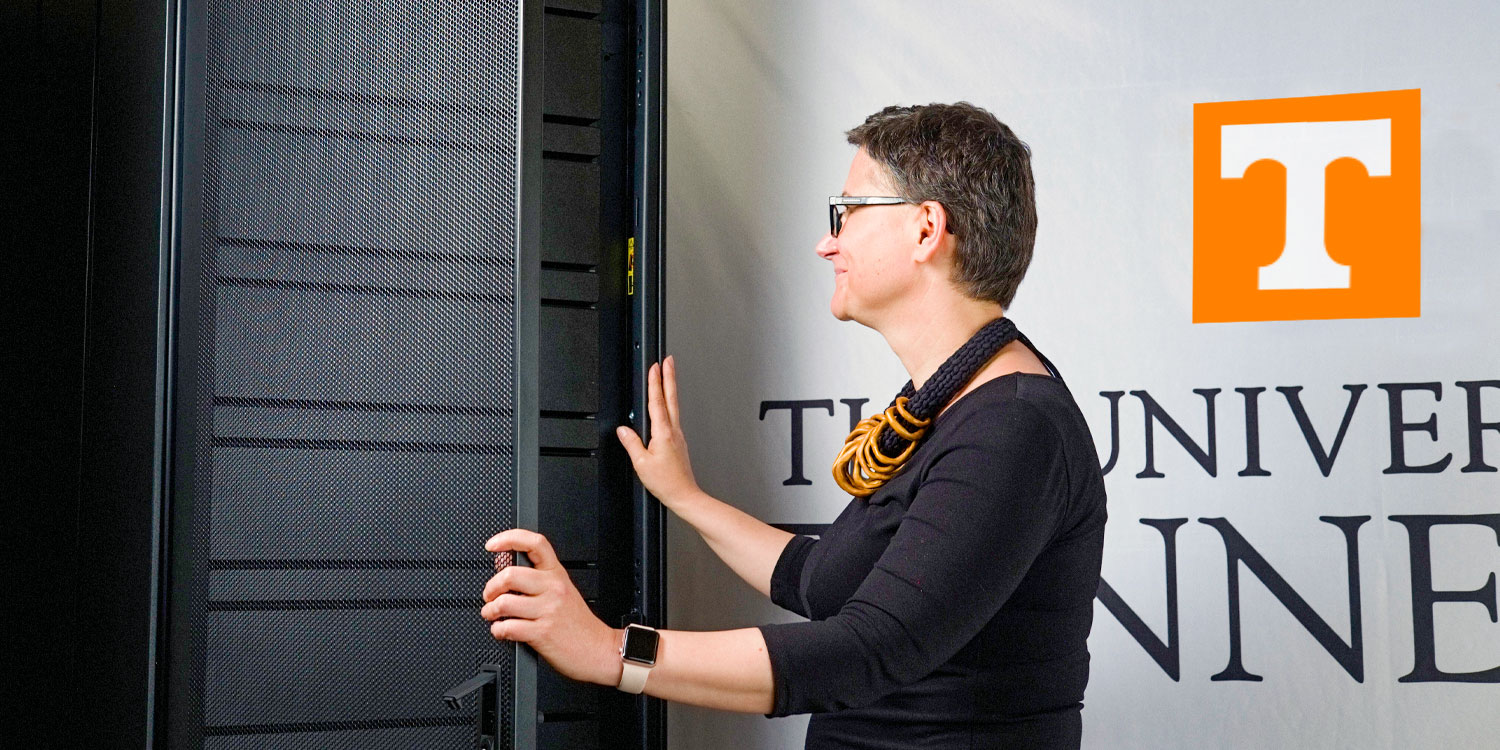

Taufer Strengthens UT Expertise in Computing’s Next Frontier
Just as a high-performing computer needs the right parts in order to work at its best, a high-performing department requires the right people to excel.
At UT, that right mix of people have helped make the Tickle College of Engineering a leader in the world of high-end computing, according to Dongarra Professor Michela Taufer, a globally respected expert in the field.
In fact, that’s what attracted her to UT in the first place.
“There is a very strong, very broad group of researchers here, covering many aspects of computing,” said Taufer, who works in the Min H. Kao Department of Electrical Engineering and Computer Science. “A lot of places can claim to excel in one area or another, but we have people who are experts in machine learning, in computing speed and power, in computing hardware, in many areas. High performance computing goes well beyond supercomputing, and we are helping lead innovation in this arena.”
Speaking of the edge, Taufer said that the next advancement taking place in computing is through what is called edge computing.
Whereas cloud computing involves information and data being stored in a centralized location, edge computing brings those files and figures closer to where they are being used.
An increasing number of industries are using edge computing in a cycle of innovation: Companies use their available data and information to help make starting decisions, then use the resulting data gathered after those first actions to influence future improvements. This holds particular value in areas where even the slightest improvement in performance could make big differences.
Take energy, for example. When used in conjunction with wind turbines, edge computing can better predict times of need, the best angle for blades to be pointed, which turbines to activate, and even the best path to route the produced power, all using a cycle of data gathering and implementation.
“Traditional computing won’t be replaced, but will be added to through things like edge computing or quantum computing,” she said. “Because we have people with expertise in those areas, UT can really be out in front.”
That leadership impacts humanity in a number of ways.
Through the methodology Taufer and others at UT are stressing, surgeons can figure out the best way to operate before making the first incision; farmers can get a better idea of what and where to plant; and automotive engineers can design safer, more efficient vehicles, all of which are processes where failure results in a negative outcome for humans.
Taufer said it is exciting to see students come to UT with new ideas and watch faculty use their own expertise to help their pupils explore, develop, and push the boundaries of computing.
Her department is particularly well positioned because it has faculty with advanced knowledge of several areas of key importance to computing, including applications, libraries, and hardware and was recently chosen by IBM for an award of a cutting-edge server stack.